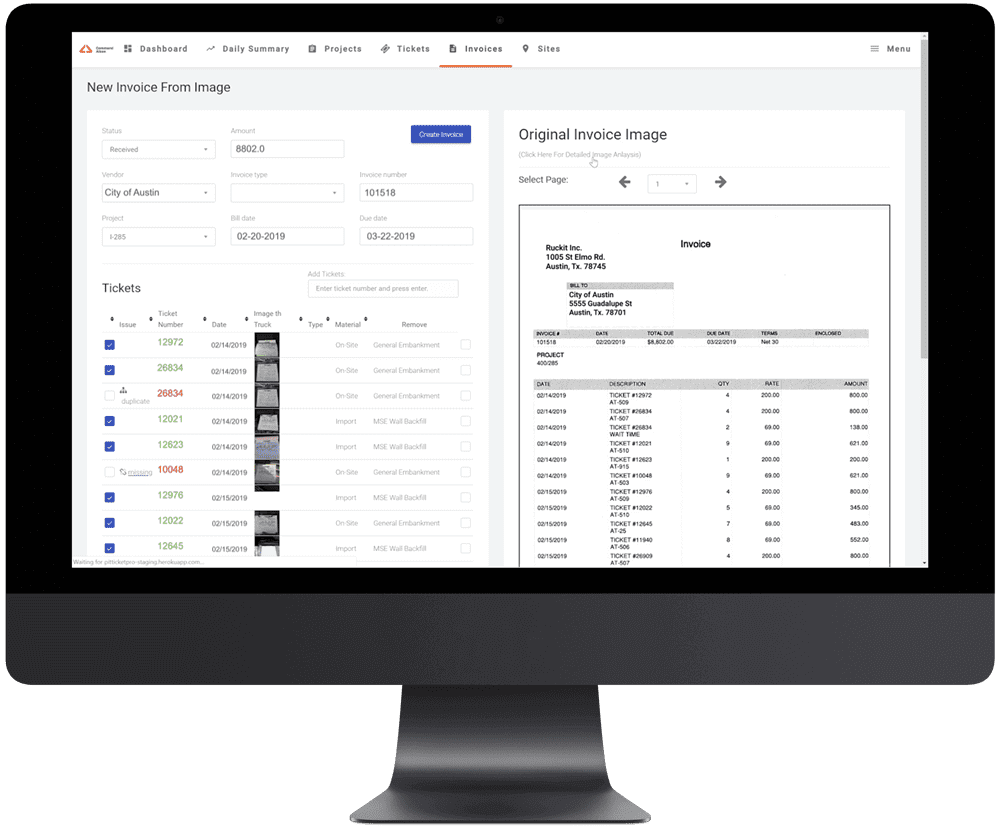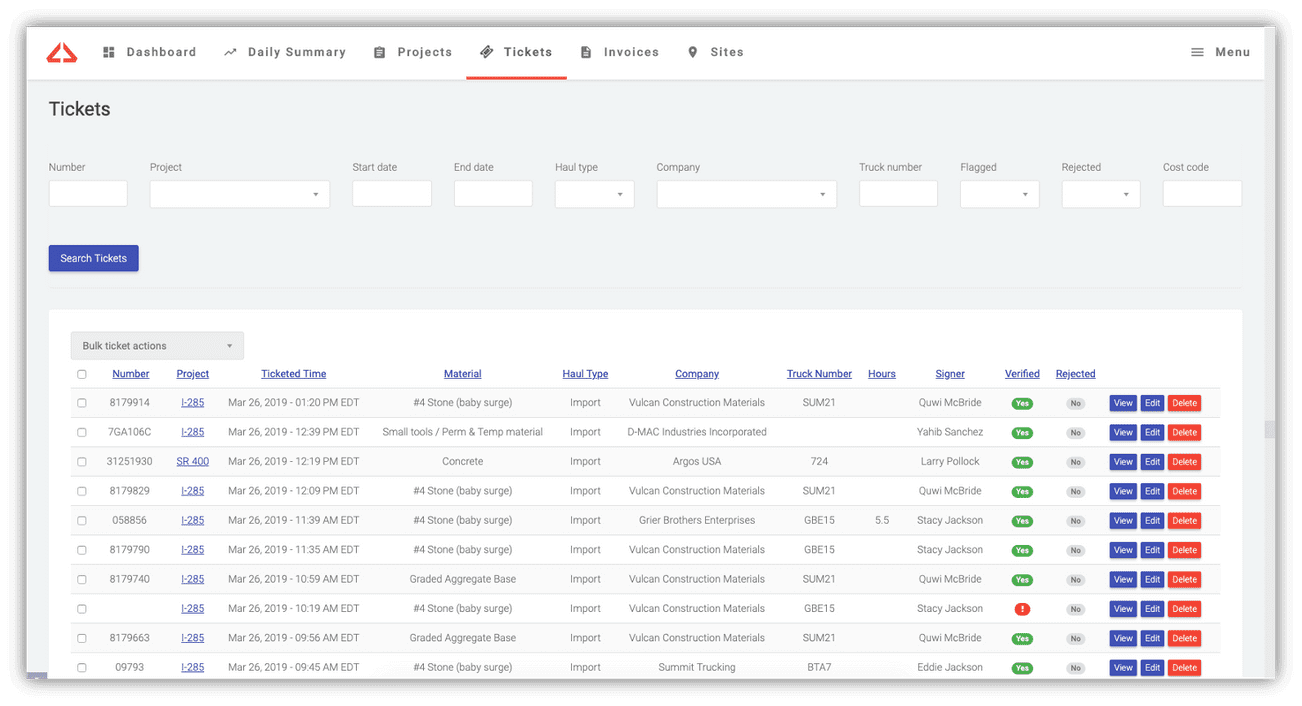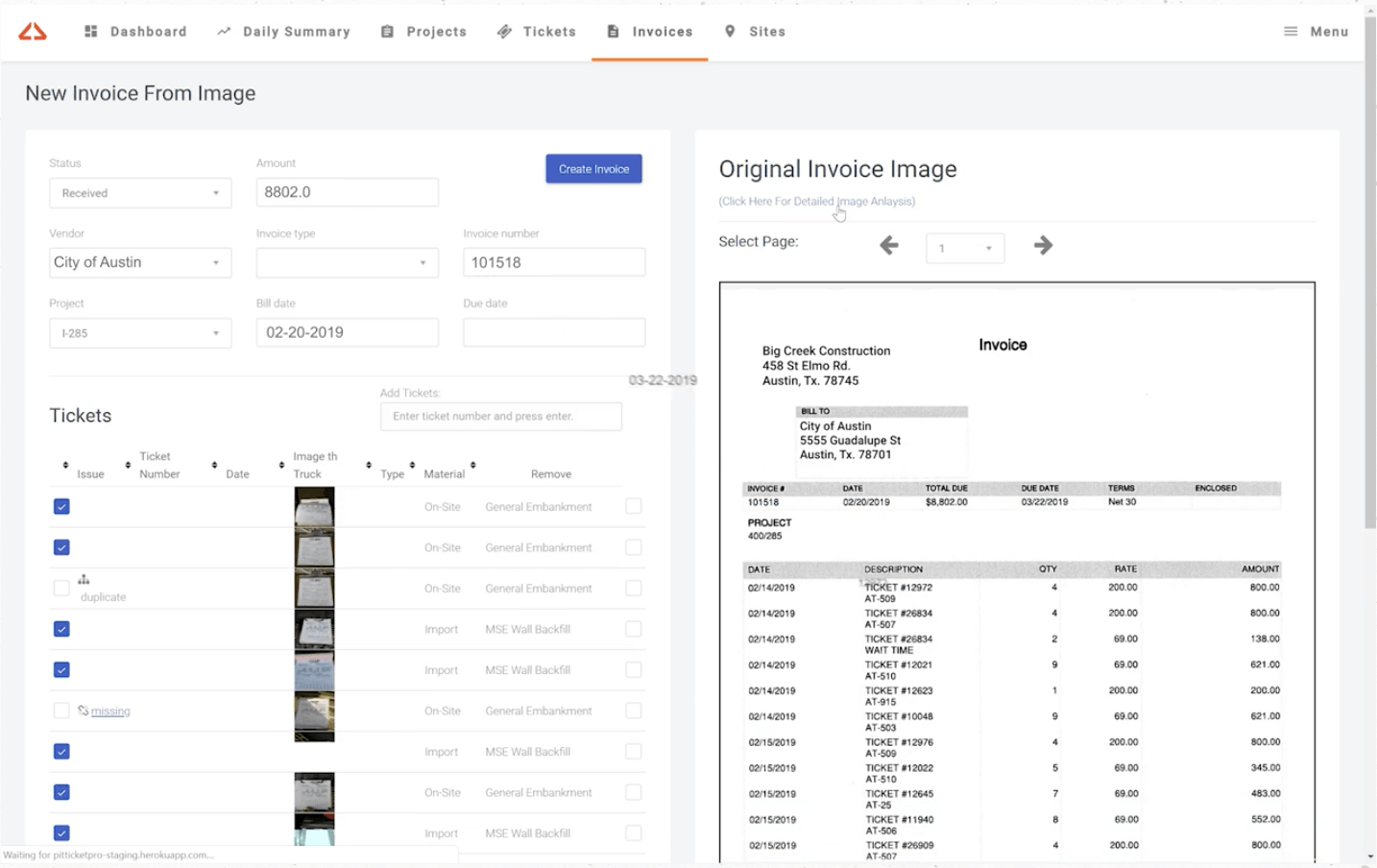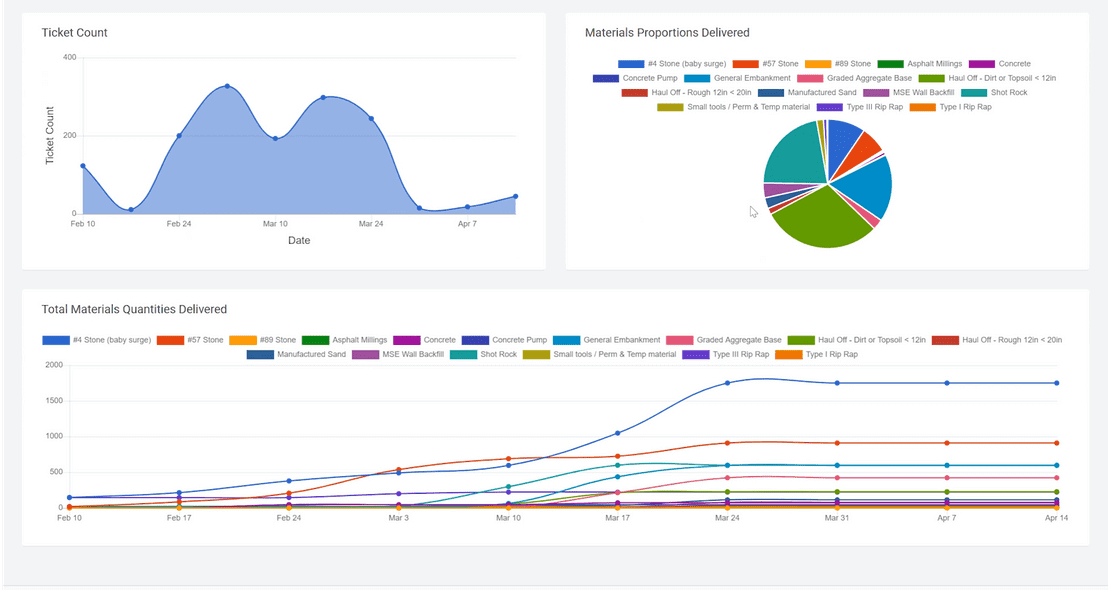Ticket Accounting
Take All of Your Tickets Digital

Digitize 100% of Your Tickets
Integrates to Existing AP Systems
Eliminate Errors and Get Paid Faster
WATCH NOW
Digitize 100% of your tickets
With Command Alkon’s Ticket Accounting, tickets and invoices are digitized and stored in one location, then AI can automatically match line items from ticket to invoice – flagging the user if they are being over-billed or highlighting other exceptions requiring clarification.
“Our estimated savings are around 1.5 people. By that I mean, we would have to hire 1.5 people to do the job that Ticket Accounting does automatically,”
– IT Manager, Sunset Logistics

GET TICKETS INSTANTLY
- Electronic proof of delivery with the mobile app
- Automatically receive quarry tickets with ScaleSync
- Ticket Accounting Assist extracts ticket data and calculates hours
- Find old tickets with the click of a button
AUTOMATICALLY MATCH TICKETS TO INVOICES
- Import tickets from Dropbox, your computer, or use the scanner integration
- Automatically match invoices to tickets
- Detect missing, duplicate, and already invoiced tickets
- Searchable record of all invoices for easy auditing


KNOW YOUR QUANTITIES AND COSTS DAILY
- Real-time quantities for each material
- Daily production summary by project, material and truck
- Automatically calculate yield for each material
- Customizable load conversion rates
- Daily materials summaries
Extend Your Value
Delivering transparency into order information to Customers from a simple mobile application
Digitize all your tickets for any inbound load at the plant, on the jobsite, and in the office
Drive decisions with critical data from anywhere with cloud-based dispatching
Request a Demo

